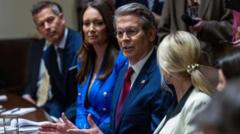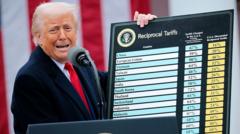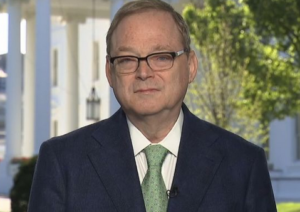As tensions rise in the ongoing U.S.-China trade conflict, China's recent suspension of vital rare earth exports poses significant implications for international supply chains and economic recovery.
China Halts Rare Earth Exports Amid Escalating Trade War with the U.S.

China Halts Rare Earth Exports Amid Escalating Trade War with the U.S.
In a strategic maneuver, China has paused exports of critical rare earth minerals, impacting global industries.
China has taken a decisive step in the ongoing trade war by pausing exports of certain rare earth minerals and magnets, which are essential for various industries such as automobiles, semiconductors, and aerospace. This action is a direct response to the heightened tariffs imposed by the Trump administration. Now, these commodities can only be exported from China under special licenses, a system that is still under development, creating uncertainty for companies reliant on these materials.
The trade friction has thrown many global businesses into turmoil, disrupting long-term planning and market stability. Industry leaders express concerns regarding the potential shortage of minerals and products as the license system is set to roll out without clarity on its administration.
President Trump’s administration appears to be in a reactive stance, anxiously awaiting communication from Chinese President Xi Jinping, whose leadership style may involve caution in interacting with the U.S. In a show of diplomatic efforts, Xi is currently in Vietnam, where he will finalize nearly 40 agreements aimed at enhancing bilateral ties, including substantial investments in infrastructure.
The ramifications of the trade conflict are evident as the Trump administration signals intentions to impose further tariffs on essential electronics and commodities following the withdrawal of some prior exclusions. Meanwhile, American consumers are racing against time to purchase products ahead of expected price hikes from retailers who are grappling with rising costs due to the tariffs.
Additionally, other international players, including Taiwan, express apprehension about the ongoing uncertainty, affecting small exporters who feel the ripple effects from these trade tensions, demonstrating the extensive impact of a seemingly localized dispute between two global superpowers on the world economy.
The trade friction has thrown many global businesses into turmoil, disrupting long-term planning and market stability. Industry leaders express concerns regarding the potential shortage of minerals and products as the license system is set to roll out without clarity on its administration.
President Trump’s administration appears to be in a reactive stance, anxiously awaiting communication from Chinese President Xi Jinping, whose leadership style may involve caution in interacting with the U.S. In a show of diplomatic efforts, Xi is currently in Vietnam, where he will finalize nearly 40 agreements aimed at enhancing bilateral ties, including substantial investments in infrastructure.
The ramifications of the trade conflict are evident as the Trump administration signals intentions to impose further tariffs on essential electronics and commodities following the withdrawal of some prior exclusions. Meanwhile, American consumers are racing against time to purchase products ahead of expected price hikes from retailers who are grappling with rising costs due to the tariffs.
Additionally, other international players, including Taiwan, express apprehension about the ongoing uncertainty, affecting small exporters who feel the ripple effects from these trade tensions, demonstrating the extensive impact of a seemingly localized dispute between two global superpowers on the world economy.























